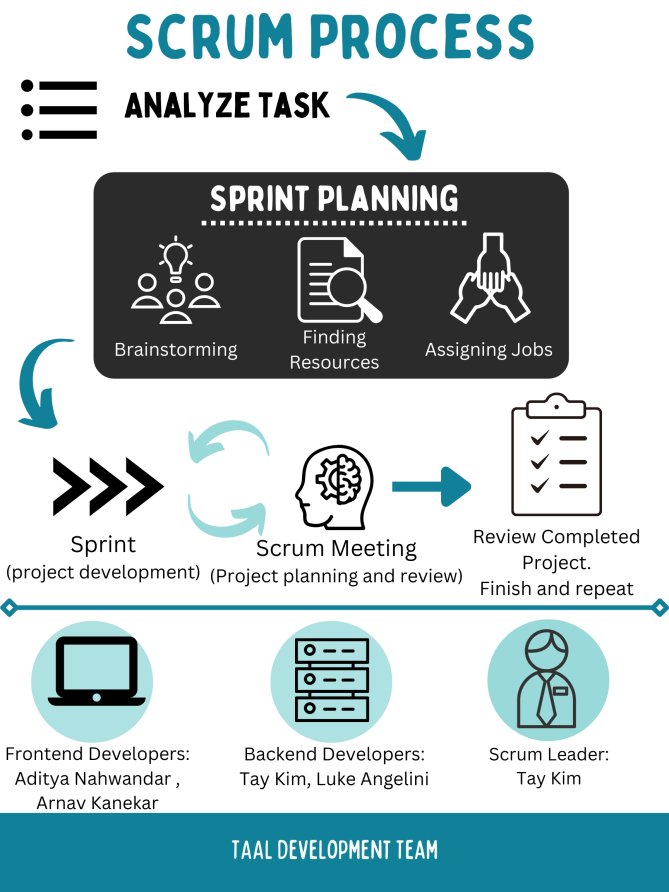Agile Methodology
Tri 1 Project Planning

Team Roles
Updated roles for members.
- Tay Kim: Backend
- Aditya Nawandhar: Frontend
- Arnav Kanekar: Scrum Master
- Luke Angelini: DevOp
Project Based Learning Vocabulary
- PBL - Project Based Learning is an inquiry-based instructional approach, in a real-world context, where students generate the pathways and products that meet defined, standards-based outcomes
- Project - Time frame in which your culminating product is developed through workshops and deliverables
- Culminating Project - Compilation of deliverables derived from the Deconstructed TEKS that come together to create a final presentation/demonstration of what was learned throughout the project
- Driving Questions - Helps to initiate and focus the inquiry. It also captures and communicates the purpose of the project in a succinct question. It creates interest and a feeling of challenge. It guides the project work. It helps student answer the question: “Why are we doing this?”
- Enduring Understanding - Refers to the important ideas or CORE processes that are central to a discipline and transferable to new situations and that have lasting value BEYOND the classroom… Learning should be measured in YEARS. “30 hours vs. 30 days vs. 30 years”
- Entry Launch - The engaging activity that kickstarts your PBL.
- Entry Document - The document used to drive the project, connect the TEKS to the idea, and develop the KNOW/K2K. Can be delivered in multiple formats.
- Checkpoints - Scheduled mini-presentations held throughout the project to allow for formative assessment, positive & negative feedback, whole group collaboration, accountability, speaking practice, and progression toward project completion. These develop 21st Century Skills and reinforce the focus on the enduring understanding, driving question, and culminating product.
- Facilitating Questions - Appropriate way that teachers use to guide students toward the enduring understanding/deliverable/goal, redirect students, “pull out” content vocabulary, or help students make connections (conceptual, cross-discipline, relevance, value). Open ended is most effective, but close ended, probing techniques are acceptable for scaffolding.
- Workshops - Planned lessons that are listed for students in a checklist or added assessments indicate. Commonly held in small groups to meet the need of the student(s) or group(s).
- Deliverable - “End result” or goal of a workshop that will directly be used for the realization of the culminating product. It can be knowledge, but it is typically something that will be presented, built upon, or used to achieve the project’s desired result.